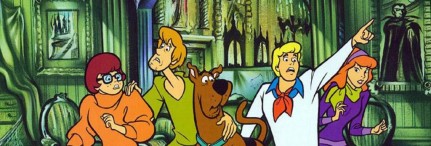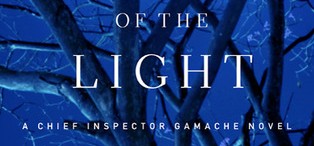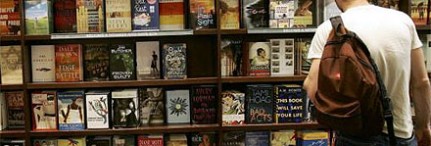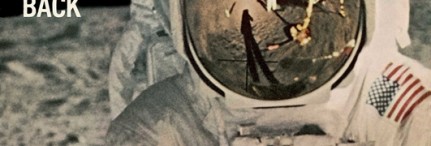I’ll be the first to admit that I was a nerdy teenager. Not pocket protector nerdy, but no sports star, either. I was bookish, I guess you could say. I read A LOT back then, and nothing pleased me more than going to the local bookstore (By local, I mean a twenty-minute drive) and walking among its shelves.
The store was called Friar Tuck. I believe it was part of a chain that went belly-up years ago. It wasn’t large and the staff wasn’t what you’d call knowledgeable. But it was heaven for this book-deprived kid.
With limited funds in my pocket, I could usually buy only one or two books at a time. But that was the best part. The exquisite torture of making a decision. I’d weigh my options carefully, picking one book before putting it down in favor of another, only to go back and grab the original one. I’d read the jacket copy over and over. I’d scan the first chapter or two. If it was a hardcover, I’d hold it in my hands and enjoy the weight of it. (Weight was important back then. If I was going to shell out for a hardcover, I needed to really feel its heft when reading it.)
I’d spend hours doing that. Probably to the annoyance of those part-time employees. But I found many good books that way. THE SECRET HISTORY. THE VIRGIN SUICIDES. I discovered THE NIGHT OF THE HUNTER in that cramped bookstore. And a tawdry little British book called DAMAGE that my classmates passed around like it was a joint.
In other words, I browsed.
Now, not so much. When I go to a bookstore, its usually because I know what I want and make a beeline right toward it. Same thing on the rare occasions I order from Amazon. And it’s definitely the case when buying something on my Kindle.
Browsing, it seems, is dead.
Think about it. It used to be you could go to a store, scan the shelves and find something that struck your fancy. In the age of Amazon, your fancy is pretty much struck for you. Yes, Amazon makes suggestions and bundles books together, but you can only see what they show you or what books you actually know about. How can you find something new and unknown if there’s no longer a way to stumble upon it?
It’s even worse with the Kindle. Don’t get me wrong. I love mine. But it’s easier to make a chocolate souffle than to find an unheralded book on the Kindle. That’s why Kindle users all seem to be buying the same handful of books. It’s all they know about and all they see. Thus, it’s all they purchase. There’s no “Surprise Me!” option that brings up an unknown author. Instead, it’s link after link to the same book club favorites and vampire sagas.
Now, before you start to punch holes in my argument, I’m fully aware that you can go into your local Barnes & Noble and browse for as long as you want. That is if you can find the books behind all the DVDs, board games, blank notebooks and tea paraphernalia that seem to dominate such stores now. And once you do, your options are usually limited to whatever bestsellers are deemed worthy enough to sit on their display tables. To find something new and unknown, you’ll have to dig for it. And few people have the time or energy to dig anymore.
This is where indie booksellers come in handy. Sure, they push THE HELP and whatever Swedish mystery is popular these days, but that’s because they have to. Their bottom lines depend on it. But they also value new voices and are eager to share them with their customers. Chances are, if you go into an independent bookstore and ask for something you’ve never heard before, they’ll have a suggestion for you.
So, let’s all make a resolution right now. Let’s vow that the next time we’re in a bookstore, we’ll spend at least ten minutes browsing. We’ll pick up a book we’ve never heard of before, written by an author whose name is unfamiliar. If we like the looks of it, we’ll buy it. We will, for one small moment, once again be a nation of browsers.








